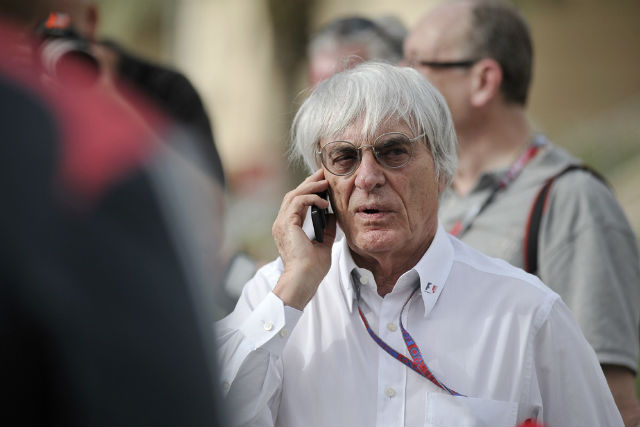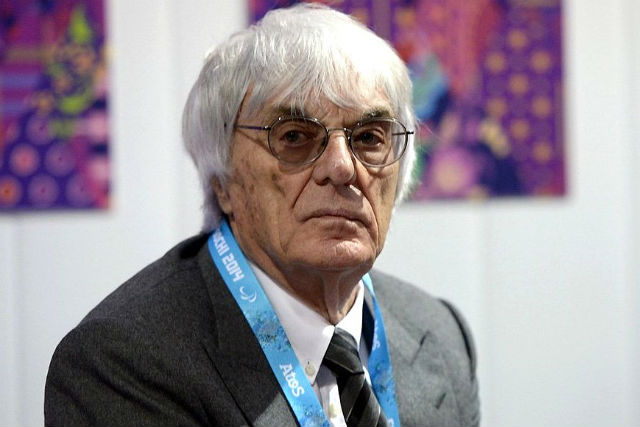With the recent news that Bernie Ecclestone has been removed as the boss of Formula One, many are not just wandering how the change will affect the sport but also reflecting on Ecclestone’s career.
Having overseen Formula One for 40 years and transformed it from a niche sport to a billion-dollar global business, Ecclestone’s impact and business acumen are undeniable.
Ecclestone’s actions and outspoken views did create a fair number of controversies along the way though. While some of Bernie’s more talked-about views and ideas were widely seen as his way of building up publicity for the sport he oversaw, certain examples backfired spectacularly.
As a result, Ecclestone has been accused more than once of being out of touch with the fans of F1 and out of touch with the majority of society in fact. For those reasons, some are viewing Liberty Media’s takeover of F1, and their removal of Ecclestone from his CEO position, as an overdue blessing.
One thing’s for sure. Nobody in the sport will forget the impact of the man’s words or actions anytime soon.
Here is a look back at the controversies that stick out the most from Bernie Ecclestone’s lengthy and extraordinary stint running Formula One.
The time he said Hitler was “able to get things done”

When Ecclestone took over running of the in the seventies, he soon establish a reputation for having dictator-like influence over the sport. Quite a few in the F1 community, including those in the media, soon began casually calling him the Tsar of F1.
It was common knowledge Ecclestone thought F1 had to be run like a dictatorship to function properly. What landed him in hot water though was a Times interview published in 2009, during which he explained why he though dictatorships would work better than democracies for most countries. He appeared to make a positive remark about the most infamous dictator of all, Adolf Hitler.
Ecclestone said: “In a lot of ways, terrible to say this I suppose, but apart from the fact that Hitler got taken away and persuaded to do things that I have no idea whether he wanted to do or not, he was in the way that he could command a lot of people, able to get things done.”
This quote sparked outrage from many within F1 and outside F1, especially Jewish people. Ecclestone later apologised for his remark, but when he found out that the World Jewish Congress (WJC) had called for his resignation, he said: "If the WJC is influential, it's a pity they didn't sort the banks out.” Adding: “They have a lot of influence everywhere."
His sceptical, dismissive attitude towards female racing drivers

Throughout the history of Formula 1 only a small number of female racing drivers have been able to drive such cars, even fewer have partook in a proper F1 race.
The topic of getting women racing in Formula 1 has cropped up frequently within the last couple of decades and Ecclestone, unsurprisingly, has been asked for his view more than once. His responses though have proven either sceptical, bizarre, flat-out dismissive, or all the above.
For instance, in early 2000, Ecclestone said: “What I would really like to see happen is to find the right girl, perhaps a black girl with super looks, preferably Jewish or Muslim, who speaks Spanish.”
In 2005, when publicly commenting on female IndyCar race winner Danica Patrick, he remarked: “You know I've got one of those wonderful ideas ... women should be dressed in white like all the other domestic appliances.”
Ecclestone called Patrick soon after the story emerged to apologise. But Bernie bizarrely repeated his “domestic appliance” quip to a baffled Danica during their conversation. He later called her a second time to apologise again.
At the start of 2016, Ecclestone didn’t sound particularly positive on the prospect of women racing in F1 anytime soon. Speaking to the Canadian television network TSN, he said: "If there was somebody that was capable, they wouldn't be taken seriously anyway, so they would never have a car that is capable of competing."
This remark provoked strong reactions from women in motorsport, especially from the American stock car racer Leilani Munter, who described Ecclestone as “just a sad, pathetic, sexist old man with pre-historic views of women.”
Ecclestone remarks were made around the same time that ex-F1 test driver Susie Wolff launched the Dare to be Different initiative, which aims to bring more female talent to motorsport.
The bribery scandal in Germany

Among the numerous deals that made Ecclestone a very powerful and rich individual were the ones he made that made him effectively Formula One’s leader.
In 2000, Ecclestone struck an eyebrow-raising deal with the president of F1’s governing body, Max Mosley, an old friend of Bernie’s. The deal granted Ecclestone the commercial rights to F1 for a staggering 110 years, for a one-off fee of $360m – a relatively low sum to pay, many remarked.
A vast number of other deals followed which saw the rights to F1 transferred through various organisations. Among these deals, a German TV company bought the rights, and then collapsed. The company’s assets were then taken by its creditors (banks).
This led the German bank BayernLB to sell its 47.2% stake in F1 to an investment company called CVC Capital Partners in 2006. From this point onwards, CVC ran the sport with Ecclestone employed as chief executive and this remained the case until Liberty Media bought ownership of the sport last September - a deal concluded earlier this month.
But the suspicious circumstances of the BayernLB deal pulled Ecclestone into a German court case in 2014, where he faced charged of bribery. It was alleged that a BayernLB banker, Gerhard Gribkowsky, was paid by Mr Ecclestone to ensure the F1 stake was bought by a company that he favoured, so that he would remain in charge of the sport.
Gribkowsky was sentenced to eight and a half years in prison in 2012 for accepting bribes. Mr Ecclestone says the payment was given to Gribkowsky after the banker threatened to make false claims about the F1 boss's tax status.
Ecclestone was never actually found innocent or guilty in this case, as a German court law allowed him to end the trial in exchange for a £60 million payment.
While Bernie avoided the threat of losing his job in F1 or a prison sentence, questions inevitably remained as to whether he is as innocent as he claims. Especially since he effectively bought a way to terminate the trial rather than prove decisively he never did anything wrong.
We know now though that it wasn’t this particular deal that was the catalyst for his downfall.



